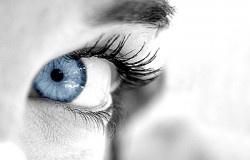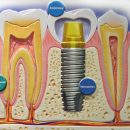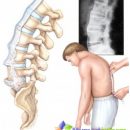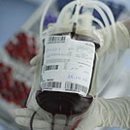Principle of treatment of medical hypnosis

Translated from the ancient Greek «hypnosis» Means Son. For many years, the hypnotic condition was represented as a special type of sleep, accompanied by partial or complete blocking of consciousness, with the braking of response reactions to external signals - with the exception of interaction directly with the hypnotist. According to the modern interpretation, the medical hypnosis represents a temporary change in consciousness, between sleep and wakefulness, during which the suggestibility of a person increases and its mind control over what is happening - at the same time, the immersion in the hypnotic state increases, a stable concentration of attention in the sense of words and actions of the hypnotist appears. It is believed that people open for this type of exposure, T. E. hypnotize a person without his consent is very difficult. This impact is largely self-impact, the effectiveness of therapeutic hypnosis, first of all, depends on the preparedness of the patient to undergo suggestion.
Thus, the hypnotherapist specialist can give a setting to get rid of bad habits - Alcoholism and tobacocuria, gaming and drug addiction, as well as overeating. The suggestion and self-sufficiency will help reduce pain, literally «talk the teeth», Easy the patient's condition, as well as cure psychosomatic disorders - depressive states leading to bodily diseases.
At the same time, the concerned is the concern that the power of hypnotic exposure can be sent as a good person - to include its hidden potential, rid of unconscious fears and complexes, to help cope with illnesses and in harm - to make installation during a session to destructive actions, Violence and aggression.
It is important to take into account that therapeutic hypnosis must be applied under the supervision of an experienced psychotherapist specialist, since a specialist with a medical diploma is able to determine the disease that needs to immediately contact the surgeon, an oncologist, cardiologist, while charlatan can inspire a patient a subjective feeling of improvement when progression of the disease - up to the occurrence of death.
How patients are injected into a hypnotic state

Postgipnotic suggestion is also possible, this is especially true of simple and understandable instructions - like the task after a period of time to take a certain book from the shelf and disclose it on a specific page. If a person got instructions to forget about this suggestion, he will not give himself a report why he felt the need to perform these actions. As for complex and bizarre tasks - most likely, the patient is most likely, even the most influenced by hypnosis admits that he felt the need to perform some action, but threw this thought as ridiculous.
The testimony of witnesses and suspected crime obtained during a hypnotic session does not have legal force. Thus, actually promptly get information, but it is not possible to reliably establish whether the hypnotized person remembered the information - or simply, by virtue of his imagination, invented them.
Useful impact of therapeutic hypnosis

For most of the ailments of contraindications to the use of medical hypnosis, there is no. With the help of medical hypnosis, the treatment of diseases weighing the psychosomatic nature - ulcerative disease, Hypertension, Bronchial asthma, excessive drowsiness, psychogenic impotence and Frigidity, Sexual dependence, as well as mastopathy and disorders of the menstrual cycle.
Medical hypnosis is actively used for Treating stuttering, Obesity, With different Non-believe and depressions, mood swings, increased anxiety, presence of complexes and fears, allergic conditions, Panic attacks. Often, the use of hypnosis is shown in order to get rid of psychological dependence (from relatives, partners and bosses).
It is believed that as a result of hypnosis, the symptom disappeared may be replaced by another. Specialists argue that the cure is completely controlled by the will of the patient, t. E. It takes a purely at his own request. There is a significant amount of pathological conditions in which a person subconsciously does not want to get rid of its dependencies, including by hypnosis. If the patient is configured to get rid of an unpleasant symptom, it is unlikely that he wants to replace it with a similar.
In general, the effectiveness of hypnotherapy largely depends on the following factors:
- degree of illness;
- duration of sessions;
- Depths of hypnotic exposure.
After a session of therapeutic hypnosis, the patient feels a pacification, ease and tide of energy, as well as a feeling of getting rid of inexplicable gravity - especially if working with depressed complexes and fears.
The state of relaxation and some diffraction usually passes within 15-20 minutes, then you can get behind the wheel, as well as engage in our usual affairs. As a result of the course of therapeutic hypnosis, intonations, gestures, posture, behavioral reactions are gradually aligned - the patient becomes more confident and calmer, his well-being and relationship with the surrounding people change for the better.
Anxiety, panic and fears become controlled, depressive states are leaving, obsessive thoughts and desires disappear, due to which it takes away from harmful dependencies, communication becomes more productive.
Contraindications for use

The use of therapeutic hypnosis is contraindicated in the following cases:
- when aggravating diseases - for example, the inflammation of the appendix;
- with infectious diseases accompanied by high temperature;
- With hypertensive and hypotonic crisis, bleeding, cardiovascular failure, Myocardial infarction;
- With so-called twilight states of consciousness (fainting, coma), Schizophrenia, disorders in the work of the central nervous system;
- In cases where hypnosis provokes hysterical or epileptic seizures, as well as with a sharply negative installation on hypnosis.









